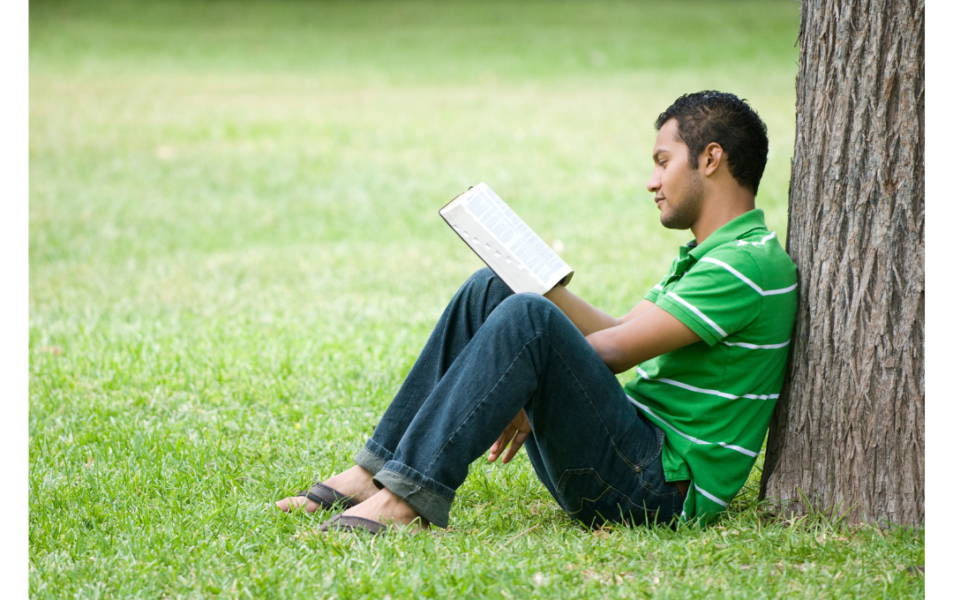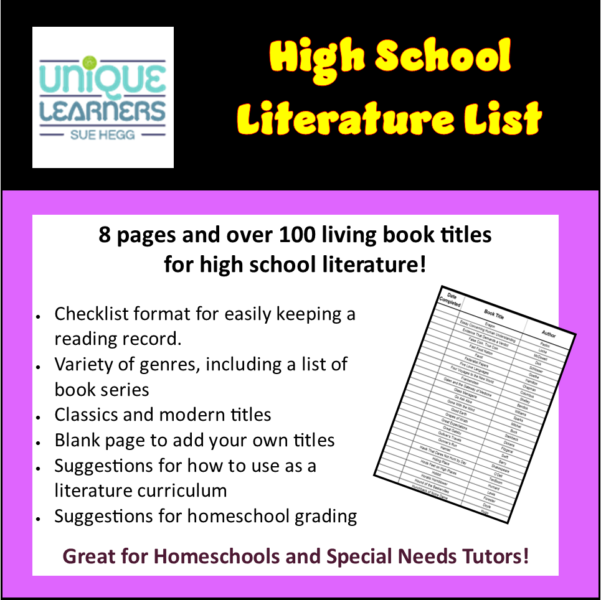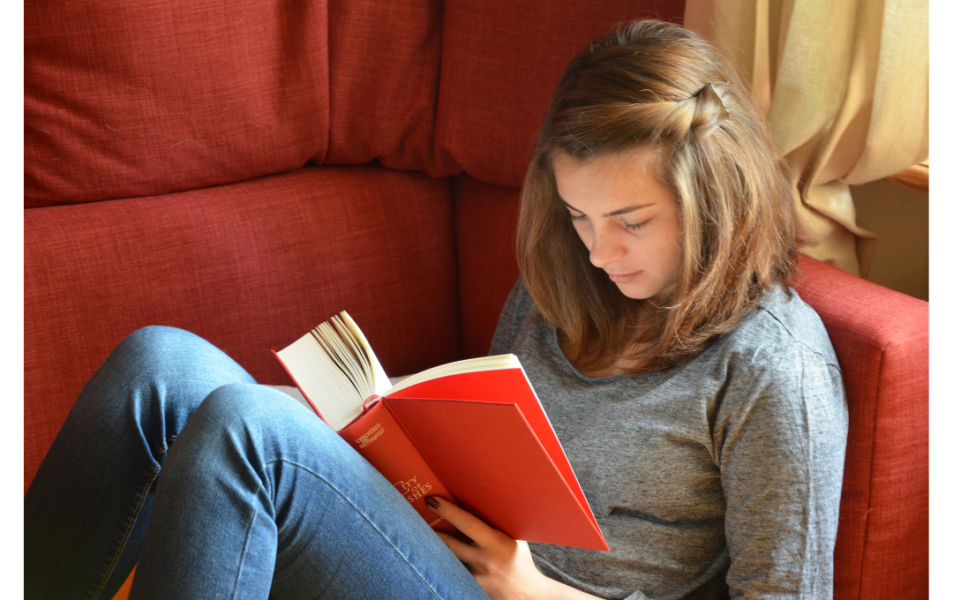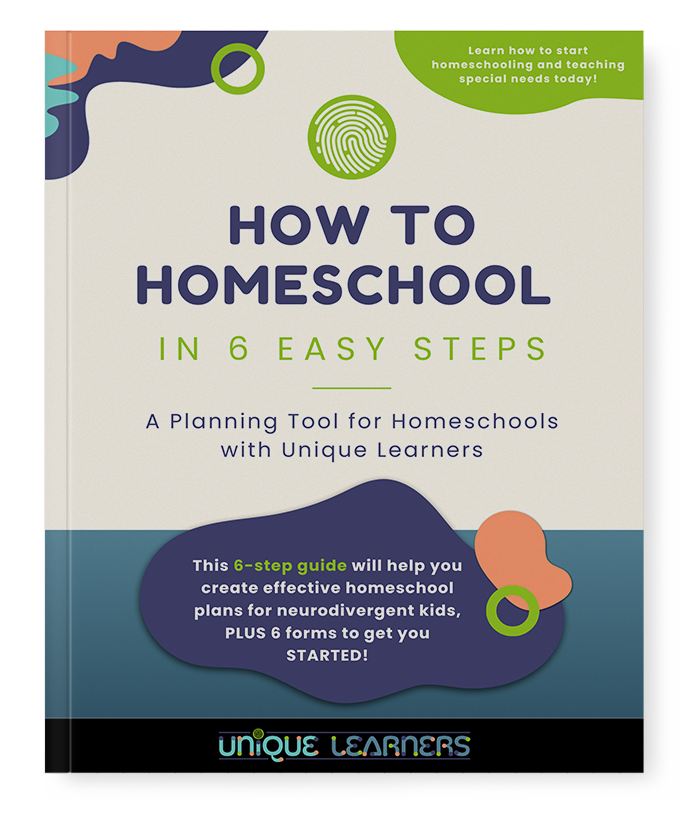Two common requests I hear from homeschoolers is for reading lists for older students and what to do for high school literature for kids with dyslexia. If you are using a curriculum, passages from books are provided or a novel is available to purchase separately. Unfortunately, many of the anthologies or stories seem boring to kids who struggle with reading.
Literature in high school has shifted from reading classics to more modern, politically charged books. Some Christian and classical textbook programs still cover American Literature one year and British Literature another year. Most public schools today try to motivate kids to read by including only recently published novels.

In our homeschool, we want a balanced approach for what our kids read, with an emphasis on quality literature regardless of when it was written. We want classics and trendy. We want a variety of genres. We want examples of excellent writing and to provide opportunities for our kids to evaluate the quality of what they read.
We use a relaxed, Charlotte Mason approach to homeschooling. We are not against textbooks, but when studying literature, we prefer to read and discuss living books. That way, we as parent/teachers, can assist in drawing out from our kids so many literary strategies. We use a Socratic method to stimulate oral discussion as a family. We want our kids to draw out subtle themes, worldviews, plot shifts, author’s intent, and more.
So as we prepared for the high school years, we wanted a list of books that we felt were important must-reads from our own high school, college, and adult experiences. Together, my husband and I sat down with long lists of recommended homeschool books and titles from our own home library. We scoured through hundreds of books to create a list that represented the books that most influenced our love of literature.
This current list is one of several revisions to our list. Some have faded off the list, while newer titles have emerged. This is by no means an exhaustive list of books appropriate for high schoolers. There is a page for your student to add additional titles that aren’t on the list. Not all the books appeal to everyone, so the list is not meant to be required reading for all students.
As you look through the list, you may think some of the titles are too easy for high schoolers. That’s OK because some of my students have dyslexia and can read those easier books independently, AND we can still draw out high school level literary thinking skills.

We also allowed audiobooks, read alouds, and some movies to be counted for their literature. We loved to read a book, watch the movie. Then we would discuss the differences and how we would have made it better.
You will also notice some titles that would typically be covered at a college level. That’s OK too because many homeschool students are above grade level in reading. Also, homeschoolers who are college-bound have the thinking skills needed to handle college level courses. The higher level books are there to satisfy students who are ready for advanced reading.
You can purchase the High School Literature List here!

Homeschool moms often ask, “So, what do you cover when discussing literature? I don’t know all the skills that are covered in high school literature.”
I divide our discussion into three parts.
First, we cover the most obvious, easiest literary elements.
We talk a lot about characters, pacing, transitions in the plot, the rising action, and the climax. Questions that can be asked about any book are:
- Who were the characters?
- What was the setting? Time and place.
- What was the problem or conflict?
- What events happened because of the problem?
- Did you have a favorite part?
- Was there a part you didn’t like?
- What was the climax?
- How did the story end? Would you have wrapped it up with a different ending?
Second, we discuss any devices that were noticed.
What tools did the author use to make the story interesting? Did those devices appeal to you or turn you away from wanting to continue reading the story?
Sometimes students have a hard time finding devices, such as similes, irony, flashbacks, foreshadowing, satire, etc. I may have students place a post-it flag at spots they particularly liked and then look at the passage together to discover what tools the author used that made the section enticing.
Third, we talk about themes, impressions, and any lessons learned.
Some common themes are: friendship, tragedy and resilience, family, faith, resolving conflicts, love, endurance, government, and more. As a Christian family, we talk about the differences between the culture in the story and a Christian worldview. Sometimes we talk about what the characters would have done differently if they had been a believer.

The High School Literature List has a requirements page that shares how we did literature for our high schoolers. I did not require formal responses on every book from my teens. I mainly wanted them to read frequently without forcing worksheets or assignments that were cumbersome and spoiled the joy of reading. Our goal was to give them flexibility and choices, thus motivating them to become life-long readers. Our goal was met because all three of our adult children are strong readers – even our two with dyslexia!
You don’t need a formal curriculum or a lot of money to purchase books. A library card and shopping for used books online and at thrift stores can help with providing plenty of reading selections. Feel free to use our literature list as jumping off point for inspiring your life-long reader!

